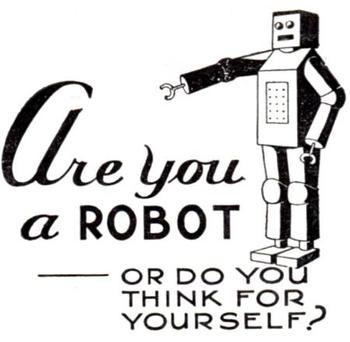They surround us these days, yet few of us even notice. Technology, wonderful as it is, has made it woefully easy for us to ignore those expressing opinions that make us uncomfortable. In Facebook, it literally takes two clicks to make someone disappear from your news feed (or friends list, for that matter). This feature tends to get used a lot, perhaps because people are predisposed to “actively seek out reassuring voices in order to confirm their beliefs and resolve . . . internal conflict.” Even more pernicious, Facebook automatically tailors your news feed to contain things that Facebook’s algorithms predict you will like. Through our own actions (both conscious and unconscious) and the actions of those hoping to engage us, we are being force fed the things we want to hear.

This is not an ideal state of affairs — not for individuals, and not for our society.
Let’s start the issue of individual growth. We need to be challenged by new ideas to remain mentally fit. 1 Complacency is, in a very real, neurological sense, a form of self-destruction. When Socrates famously said “the unexamined life is not worth living” he meant it in a moral sense, but the statement is equally true if you read it as a statement about health.
For our society at large, the trend is even more worrisome. Modern democracies are built on the notion of active participation by citizens. The system is rather ingenious for a number of reasons, but my favorite is the “wisdom of crowds” effect. The “wisdom of crowds” is a well documented phenomenon that can be summed up as follows: “if you ask enough people something, the average answer is usually far more accurate than any expert.” 2 Most documented examples of this involve things like guessing the number of jellybeans in a jar or guessing the weight of a county fair pig, but it has implications far beyond those mundane examples. Some have argued, for example, that the wisdom of crowds works behind the scenes in a market system to ensure assets are perfectly priced at any given time. Most pertinent, though, is the idea that if you submit a difficult policy question to a group of voters, they will (on average) reach the right answer. It’s a sensible and powerful idea (and can be traced all the way back to Aristotle) — but it completely breaks down when the “crowd” ceases to act as individuals and starts acting as a herd. Unsurprisingly, the wisdom of crowds effect only appears if each member of the crowd is making an anonymous, independent judgement. The upshot? Our democracy only works if everyone thinks for themselves.

When we cease to be independent thinkers, we’re handicapping ourselves and our society. Given this state of affairs, complacency and ignorance are inexcusable. Those who care about themselves and their communities absolutely MUST engage with ideas they find discomforting on a regular basis. It’s not an easy task, but it’s of monumental importance. To put it bluntly, without critical thought, oppression is a foregone conclusion:
“Oppression is domesticating. The gravest obstacle to the achievement of liberation is that oppressive reality absorbs those within it and thereby acts to submerge human beings consciousness.”
― Paulo Freire, Pedagogy of the Oppressed
And indeed, on some deeper level, it just seems right. Consider the words of Nietzsche:
“A great truth wants to be criticized not idolized.”
― Nietzsche
Why would nature (or God) have given us our faculty for critical thought if we were not to use it? Do not let the fields of your mind lay fallow. Tend to them diligently, and you will find what grows to be more nourishing than any crop the physical world could ever offer.
— TAL
1. See, e.g., https://www.psychologytoday.com/blog/the-athletes-way/201312/too-much-crystallized-thinking-lowers-fluid-intelligence; https://www.psychologytoday.com/blog/the-athletes-way/201311/one-more-reason-unplug-your-television.
2. Language borrowed from here: https://www.youtube.com/watch?v=yegyih591Jo

One thought on “Filter Bubbles”